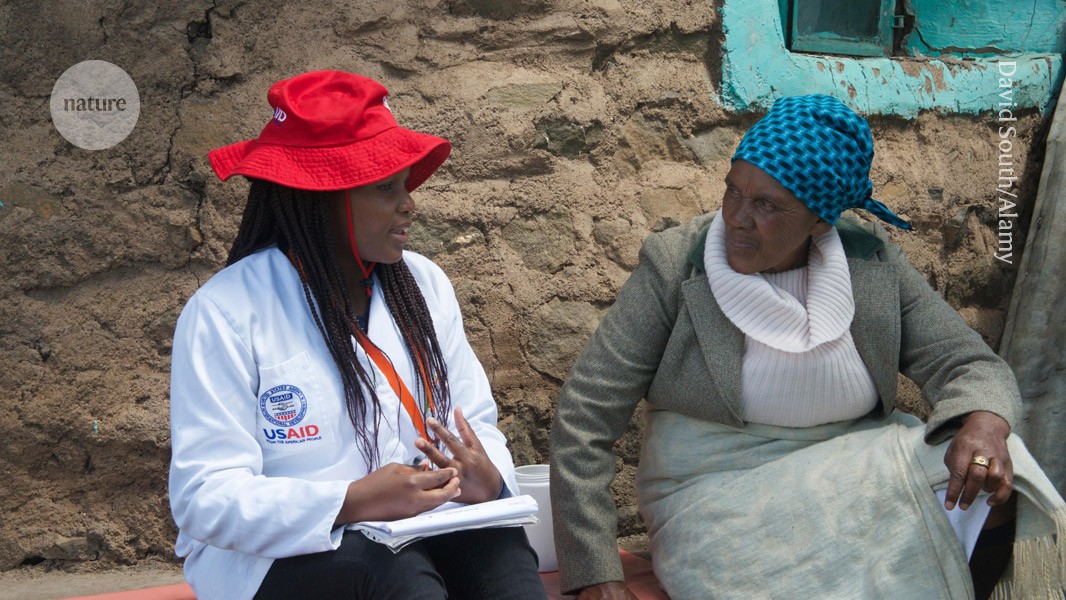The United Nations, governments and aid agencies are scrambling to save one of the world’s largest public-health databases from extinction. In February, the US government cut all funding for the Demographic and Health Surveys (DHS) programme, which collects and publishes data on health, nutrition and gender equality in more than 90 countries.
The termination was a result of the dismantling of the US Agency for International Development (USAID), which had supported the DHS programme for some 40 years, including a five-year, US$236-million grant awarded last year.
The surveys collect data on HIV, childhood and maternal mortality, malaria, tuberculosis and other health topics. With around 345,000 citations on Google Scholar, it is the most-cited international household survey programme in the world, says João Pedro Azevedo, chief statistician at UNICEF, the United Nations children’s fund, based in New York City. The data are also used to track health-related indicators supporting the UN Sustainable Development Goals.
Ending the DHS would be catastrophic, says Peter Macharia, a spatial epidemiologist from Kenya, now at the Institute of Tropical Medicine in Antwerp, Belgium. Macharia says his PhD on child health interventions was based entirely on DHS data from Kenya. “Where would we get our new statistics from?” he asks. “We would not know what is happening in terms of health in the communities and the needs in each area,” he says.
“For many countries, [the DHS] was one of the very few sources of reliable micro-data to inform policies and monitor the well-being of children and women especially,” Azevedo adds. “The discontinuity of the US grants was a big loss.”
Now, a task force has been established by the UN Statistical Commission, the world’s body that sets standards for statistics. The task force, which includes representatives from national governments, UN agencies and international funders, is assessing how access to the database can continue, along with finding alternative funding sources.
Large funders, including the World Bank, headquartered in Washington DC and the Gates Foundation, based in Seattle, Washington, are involved. A Gates Foundation spokesperson confirmed that they are searching for ways to keep the DHS going for at least the next three years. They said the foundation regards the DHS as a “public good”. Many of these organizations also rely on DHS data to guide their funding decisions, says Haoyi Chen from a UN-convened body called the Inter-Secretariat Working Group on Household Surveys, which is coordinating the task force.
Who owns the data?
The taskforce is also grappling with how to clarify who owns the data, which will influence whether or how other funders will get involved. USAID subcontracted the surveys programme to ICF International, a private consulting company based in Reston, Virginia. The firm oversees both the physical data collection from household surveys and the online platform that hosts the database, which is accessed by policymakers and researchers worldwide.
Users already registered on the platform have retained data access. But new users can no longer request it. ICF International has not publicly disclosed its plans for the database.
“ICF has the redistribution rights, and presumably countries own their own data. But this has never been written in a contract,” Chen says. One risk, she notes, is if the company starts charging for access. “It’s a for-profit company. So, what if the company says, ‘I have the data, I own it, so you have to pay to get it?’”
The company did not reply to Nature’s request for a comment by the time this article was published.


